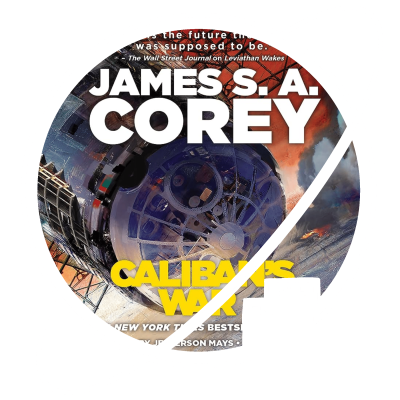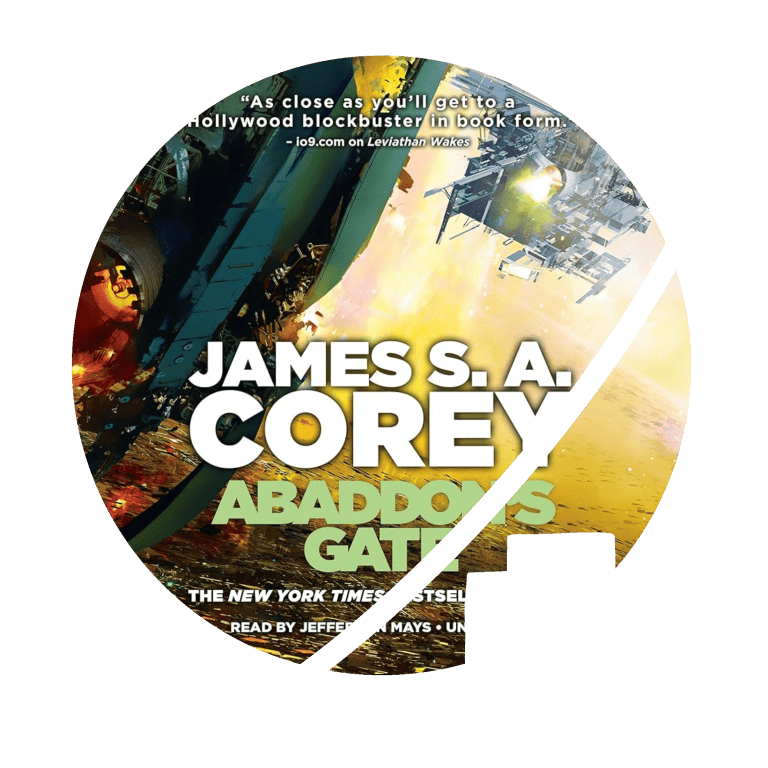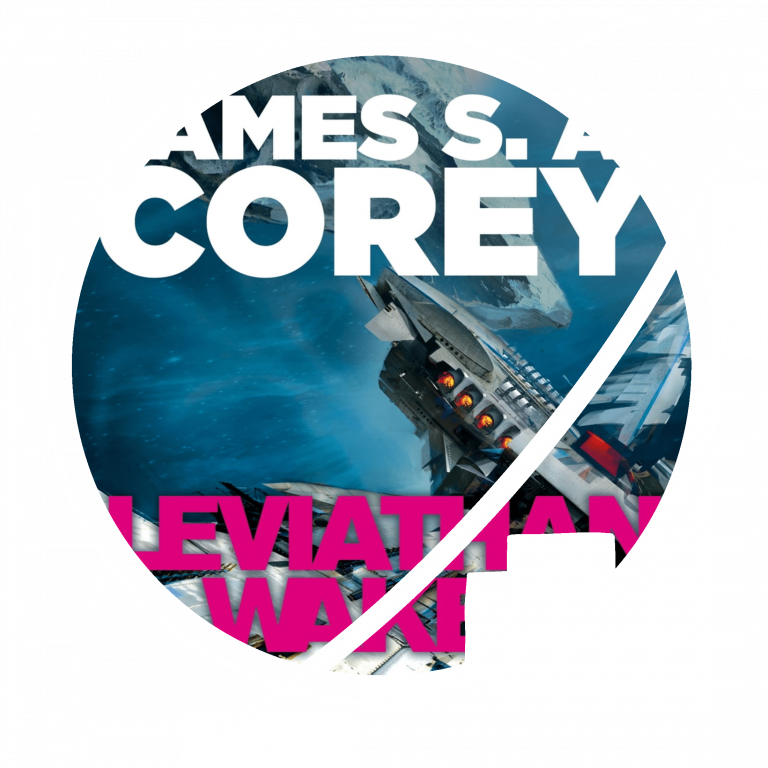- Book written by James S.A. Corey
- Published 26 June 2012
- Part 2 of The Expanse


I liked Leviathan Wakes a lot, so I’m actually surprised it took me half a year to get to Caliban’s War – part of the problem must be that I’m reading the series on paper, and I read more by listening than by reading. Don’t let my slowness in picking up this book discourage you from trying it though!
One of the cover blurbs for the The Expanse-book series describes them as a Hollywood-blockbuster in book form, and I think that description is pretty accurate. Caliban’s War is expertly paced, with jumps of perspective meaning there is always something going on, until all those separate lines intersect at the big climax. The subject matter doesn’t exactly make it a light read, but it is certainly a page turner, with easy prose and enough lightness in between the dark to keep it easy to digest.
The downside of the ‘blockbuster in book-form’-style, is that the story itself, while engaging, is rather run-of-the-mill. You’re not reading The Expanse for its mind-blowing plot-twists or carefully constructed mysteries, but rather for the banter between the characters and the tense moments where the bullets ricochet off the pages.
While reading Caliban’s War, it struck me that The Expanse has quite a few similarities to Brandon Sanderson’s writing: both read like movie scripts at times, with super-fast prose and lengthy battle scenes. But where I feel Sanderson’s characters never really come to life and he specialises in plot, Corey doesn’t focus on the plot too much but instead zooms in on that found family trope we see so often in space ship crews – in modern fiction like The Long Way Round to a Small Angry Planet through Firefly and Star Wars all the way back to classics (and I use that word here without meaning to attach the connotation of quality) like Ringworld.
Mixed with just enough near(ish)-future medium-hard sci-fi, The Expanse actually takes an interesting position in that list, since all of the other examples (except, perhaps, to some extent Ringworld) are really ‘sci-fi-as-a-setting’-type stories. Caliban’s War actually moves further away from hard sci-fi, a move that was already apparent by the end of Leviathan Wakes, and to be honest, I think it improves the book. It is mostly still very much within the realms of the plausible and certain elements – such as time delay in communications – remind the reader that the story is set in a universe that conforms – at least mostly – to the same rules as our own. That, in turn, makes it extra horrific when those rules still get broken.
Caliban’s War takes The Expanse in a slightly simpler direction, and I think that is probably the right place for it to go. I’m curious where the next instalments will take us, and I hope especially that we’ll get to read more from the perspective of Chrisjen Avasarala – who doesn’t love a foul-mouthed political realist grandmother who runs half of Earth’s government?









